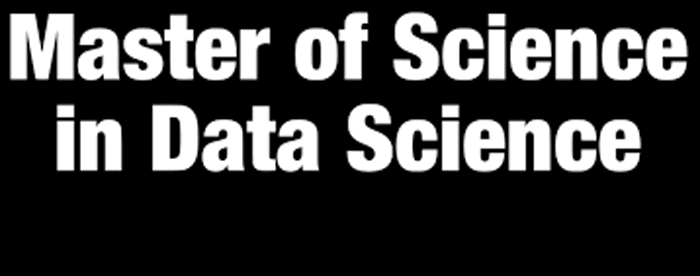
The Master of Science in Data Science (MSDS) is a two–year degree program designed to prepare graduates for a career in data science. The program combines coursework in data science, computing, mathematics, and statistics with hands–on experience in real–world projects. It provides students with the skills and knowledge necessary to analyze large and complex datasets, create predictive models, and effectively visualize data. The program also covers topics such as data mining, machine learning, natural language processing, and data engineering. These skills are essential for anyone looking to work in data science, whether as a data engineer, data analyst, or data scientist.
Master of Science in Data Science (MSDS) Eligibility Criteria
The Master of Science in Data Science (MSDS) is an advanced degree program designed for students interested in pursuing a career in data science and analytics. In order to be eligible for the MSDS program, applicants typically need to have the following qualifications:
• A bachelor’s degree in a related field with a minimum GPA of 3.0
• Some experience with computer programming, math, and statistics
• Proficiency in at least one programming language such as Python, R, or Java
• An understanding of basic database concepts
• Ability to think critically and solve complex problems
• A strong interest in data science
• Excellent communication and problem–solving skills
Master of Science in Data Science (MSDS) Colleges In India
1. Birla Institute of Technology and Science, Pilani
2. IIIT Bangalore
3. Jain University, Bangalore
4. Amity University, Noida
5. SRM Institute of Science and Technology, Chennai
6. BML Munjal University, Gurgaon
7. Manipal Academy of Higher Education, Manipal
8. VIT University, Vellore
9. Delhi Technological University, Delhi
10. Shiv Nadar University, Greater Noida
Master of Science in Data Science (MSDS) List of Streams
1. Business Analytics
2. Computing and Programming
3. Machine Learning
4. Data Visualization
5. Database Management
6. Data Mining
7. Natural Language Processing
8. Network Security
9. Optimization
10. Scientific Computing
11. Statistics and Probability
12. Algorithms and Data Structures
13. Artificial Intelligence
14. Cloud Computing
15. Data Warehousing
16. Internet of Things (IoT)
17. Predictive Analytics
18. Text Mining
19. Big Data Analytics
20. Cybersecurity
21. Data Ethics
22. Information Retrieval
23. Operations Research
24. Software Engineering
25. Data Journalism
Master of Science in Data Science (MSDS) Syllabus
Course 1: Introduction to Data Science (3 credit hours)
* Introduction to Data Science and Big Data
* Overview of Data Science Tools and Technologies
* Overview of Data Science Algorithms and Techniques
* Analyzing and Visualizing Data
* Data Mining and Machine Learning Course
2: Data Acquisition and Cleaning (3 credit hours)
* Extracting, Transforming, and Loading Data
* Data Cleaning, Preprocessing, and Transformation
* Working with Unstructured and Semi–Structured Data
* Database Technologies and Database Management Course
3:Data Analysis and Statistics (3 credit hours)
* Statistical Analysis and Modeling
* Advanced Statistical Methodologies
* Exploratory Data Analysis
* Multivariate Analysis Course
4:Machine Learning and Artificial Intelligence (3 credit hours)
* Supervised and Unsupervised Learning
* Artificial Neural Networks and Deep Learning
* Natural Language Processing
* Computer Vision Course
5:Data Visualization and Communication (3 credit hours)
* Designing Visualizations
* Visualization Tools and Libraries
* Communicating Data Science Stories Course
6: Data Science Projects (3 credit hours)
* Project Proposal and Design
* Implementing and Evaluating Data Science Solutions
* Presenting Data Science Projects
* Professional Practices in Data Science






